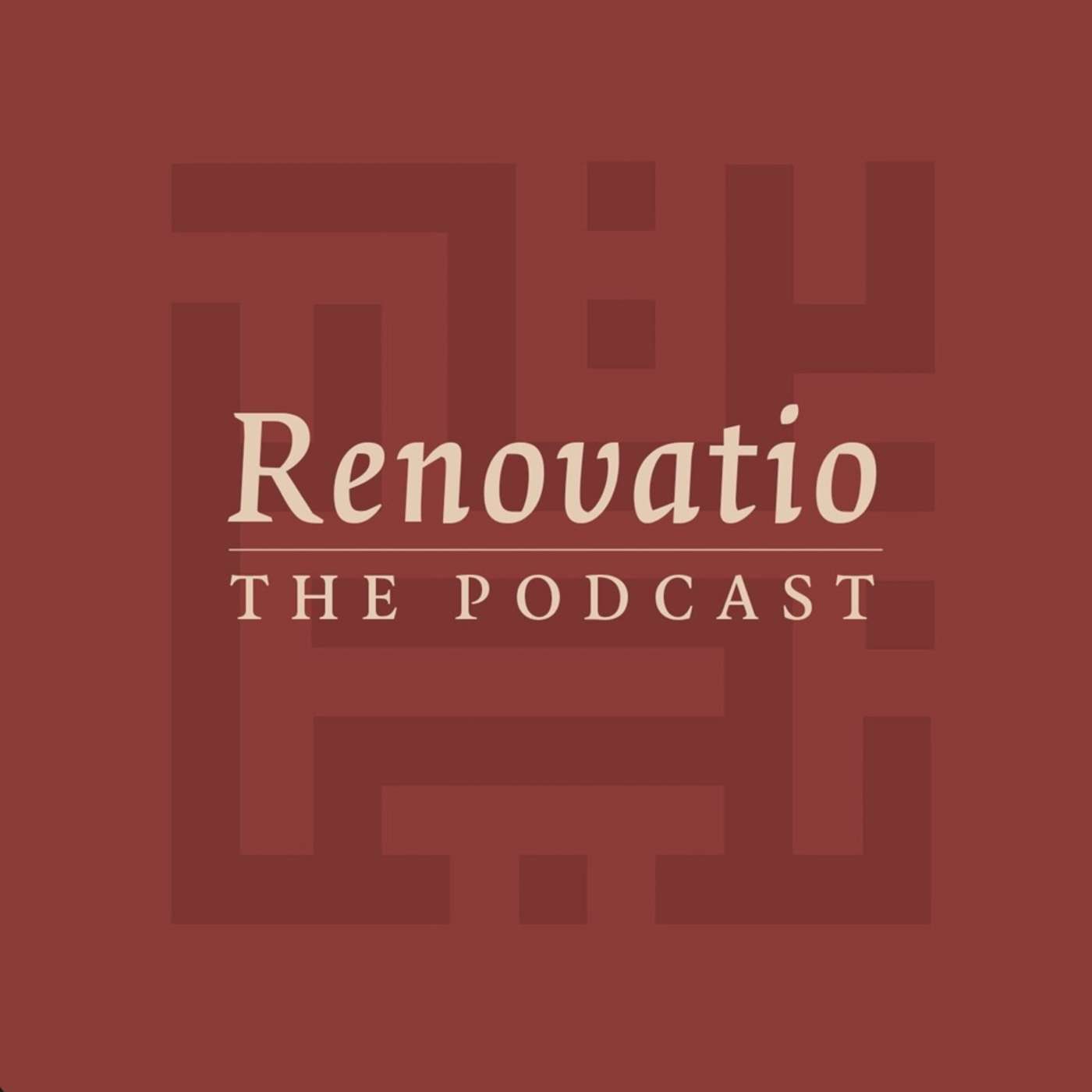

Renovatio: The Podcast
Zaytuna College
A multimedia, multi-faith publication about the ideas that shape the modern world from the first Muslim liberal arts college in the United States, Zaytuna College.
Episodes
Mentioned books

Oct 3, 2024 • 33min
Courteous Exchange in an Age of Empire by Sarah Barnette (Audio Essay)

Oct 3, 2024 • 27min
What Walking Can Do For Our Souls (Audio Essay)

Sep 9, 2024 • 40min
What is the Write Way to Read?
Does reading help you think if you write your thoughts about what you’re reading? What’s the difference between writing books about books, and writing books drawn from one’s own experiences? Such questions relate to matters that are both practical and philosophical. In this episode of our podcast, Safir Ahmed, editor of Renovatio, interviews philosopher Sophia Vasalou who writes engagingly on philosophical theology, virtue ethics, Al-Ghazali, Schopenhauer, wonder, and much more. The conversation springs from Vasalou’s essay, “Can We Think Deeply About Important Ideas Without Writing About Them?” which argues that writing that cultivates the ideals of intellectual and moral growth must eschew the illusions of originality and detachment. Vasalou shares insights from her scholarly journey, discussing the distinction between writing about philosophical concepts and writing from personal experience, particularly in her works on moral beauty and the experience of wonder.

Aug 28, 2024 • 40min
Who Gets to Define Islam? with Caner Dagli
Who is better placed to say what Islam is: the academic from the “outside” or the practitioner from “within”? In this episode of the Renovatio podcast, Ubaydullah Evans interviews Caner Dagli, a scholar of Islamic Studies, to explore the surprisingly elusive answer to the question: “Who gets to define Islam?” As an academic, Dagli critiques the approach the academy has historically taken in defining Islam within certain predetermined frameworks. They explore the tension among scholars in their attempts to define Islam, the tug between whether to hold the practice of Muslim laity or the pronouncements of Muslim scholars with greater authority, and the tension between unity and diversity in the practice and belief of Muslims worldwide. We encourage you to read Caner Dagli’s article, “Islam as One Thing, Anything, or Nothing: What the Western Academy Gets Wrong.”

Jul 18, 2024 • 35min
The Limits of Aggression
Asma Afsaruddin, an Islamic studies expert, argues that jihad is defensive based on Quranic verses and classical Muslim scholars. The conversation explores just conduct in conflicts, non-combatant immunity in Islamic traditions, the genealogy of non-combatant immunity in Islamic and Western traditions, and the importance of military ethics and humanity in conflict.

Jun 1, 2024 • 38min
The Trouble with Consciousness (Mark Delp and Esme Partridge)
Neuroscientist Mark Delp and philosopher Esme Partridge discuss the complexities of consciousness, delving into historical studies, Aquinas' perspective, and the quest for truth. They explore consciousness as more than awareness, emphasizing its dynamic nature and its role in transforming individuals through religion.

May 31, 2024 • 34min
We Are Not Our Brain (Muhammad Faruque and Esme Partridge)
Muhammad Faruque and Esme Partridge challenge the materialist view of the self in this podcast. They discuss the limitations of reducing self to brain functions, explore the historical development of thermometry, and advocate for a holistic perspective beyond neuroexistentialism.

Oct 24, 2023 • 36min
The Ancient Roots of Transhumanist Thinking
Expert on Jewish and Islamic metaphysics, Lenn E. Goodman, discusses the philosophical heritage of AI rooted in alchemy. They explore transhumanism, the loss of human identity, and the unity of truth. They also discuss uniqueness vs artificial unity and the ancient roots of transhumanist thinking through the creation of artificial beings and legendary creatures.

Mar 15, 2023 • 43min
"Is a Great Books Education for Everyone" with Thomas Hibbs
"One thing that is true of [the Great Books] list is that you cannot… think that it is a unified, monolithic view of the truth. Hobbes and Machiavelli disagree vehemently with Plato, right? There's some continuity there, but Aquinas does not agree with David Hume, who is an atheist. So, at a minimum, an honest reading of that tradition is an introduction not to a monolithic unified conception of what the truth is, but to a series of important debates."—Thomas HibbsPhilosopher Thomas Hibbs and host Ubaydullah Evans explore one of the most repeated objections to the universal benefits of a liberal arts education.Recommended Read: “The Egalitarian Objection to Liberal Education,” Thomas Hibbs, Renovatio

5 snips
Mar 15, 2023 • 43min
"The Knowledge that Transcends the Empirical World" with Hasan Spiker
"The empirical in the traditional notion of reason is only one component in the uncovering of our knowledge. But knowledge really involves uncovering the intelligible object. So what that means is the intelligible object is not there in the empirical world—that actually means transcending the empirical world to make contact with this intelligible essence."Zaytuna lecturer Hasan Spiker identifies the true ground of objectivity in a conversation with Esme Partridge.


